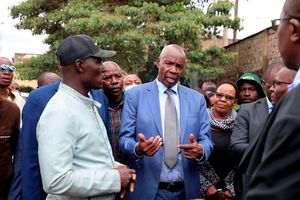Forensic audit and fraud detection

External forensic auditors can play a vital role in identifying and presenting evidence of anomalies and fraud within an organisation.
It is said that more fraud happens during times of economic or business downturns prompted by pressure to perform.
In the banking sector across the globe, many frauds have been carried out by the constant borrower, or management by means of misappropriated balance sheets or diverting funds to purposes that are not authorised.
In terms of methodology and modus operandi, organisations know what is happening and the same situations are repeated.
George Orwell famously said, “Men are only as good as technical developments allow them to be”. With new technology development, it has become a complex situation.
Financial system infrastructure today is mainly dependent on a technological backbone. New types of fraud targeting financial derivatives and various delivery channels are simply impossible to design, build and implement without availability of technology and computing.
Product innovation and complexities in this globalised and competitive world, have created a plethora of accounting roles as well as regulations impacting the way in which transactions are stored, recorded and valued. The milieu has also led to increased susceptibility of masked or high fraud ways of complex financial transactions.
Technology
Penetration of technology into the banking process has led to the situation that a clear trail of financial transactions can be unravelled only after drilling through several layers of technology in addition to the human component.
This gives allowance to many possibilities of loopholes, grey areas, and blind spots. An internal auditor plays a vital role in developing a system and procedures for identifying fraud indicators, so suspicious activities are immediately flagged and further investigated.
Today it is accepted that conventional audit methodology may not be sufficient to arrive at the truth of complex financial transactions. Rather a melee of processes and techniques termed as forensic audit or forensic accounting methodologies are imperative to fully decrypt the mechanics of complex financial transactions in question and conclude about the presence of fraud.
Even if fraud is detected, to take legal action, unless one is able to satisfy the legal angle, many times the case can be dismissed. This is why many times financial fraud cases are unsuccessful as management cannot gather the necessary evidence in the process, because fraudsters know how to cover their tracks, particularly if the culprit is within the organisation and is aware of what the auditors will flag, thereby avoiding such obvious indications.
External forensic auditors can play a vital role in identifying and presenting evidence of anomalies and fraud within an organisation. The number of disciplines involved in the forensic examination is large. A forensic specialist is supposed to train in many relevant disciplines including and not restricted to auditing, fraud examination, accounting, law, and computer technologies apart from the investigative skills to collect, analyse and evaluate evidential matter and to interpret the observation and findings.
Banks are aware of fraud and related aspects. In the awareness created for fraud and risk management systems in banks, management is required to ensure there are containment measures for effective and quick investigation, monitoring, and follow-ups of fraud. Forensic skills are vital.
Surveillance exercise
Many international banks are required to set up dedicated and well-organised special surveillance investigation functions, which would allow a continuous surveillance exercise for potential fraud-prone areas and investigations into large value frauds. These are carried out with the help of skilled manpower for internal punitive action against staff and external legal prosecution of the fraudsters and their abettors.
Forensic auditors follow the premise that anyone can be a potential fraudster and you cannot discount any individual. This is part of being professionally skeptical at all times. The fraud triangle is a framework that addresses the incentive to commit fraud, the opportunity that they have, and the rationalisation of how the culprit can rationalise their actions to themselves.
For example in such a case, a general manager falsified invoices and changed bank account numbers, deliberately diverting money into personal accounts. The incentive being the maintenance of an exorbitant personal lifestyle, the opportunity being that he was in a position of trust and was viewed as a convincing, credible person hence no one would question his integrity.
The rationalisation being that this could be happening in many organisations. Through a system of forensic audit, the uncovering of this deception was from a VAT angle, whereby a query of the VAT of certain invoices led to the revelation that the invoices were fake. While most businesses use insurance as a backstop, they must have an allocation of capital for operational risk.
Losses due to fraud would cause an operational risk and affect the running of the organisation. Better internal control processes leading to the reduction of fraud incidents could enable economising capital resources. Management must explore various strategies and controls that can help mitigate the risk of scams and embezzlement.
Whilst businesses cannot create complete fraud proofing, preventative anti-fraud actions can be taken to decrease the duration the schemes may occur thereby cutting the amount of losses.
What is the most effective way to identify fraud? Whistleblowers are most important. Creating a confidential hotline is the single most cost-effective anti-fraud action. Tips are the number one way that frauds are detected. Most tips come from employees.
Lower losses in organisations due to malpractice and swindling are observed when hotlines are present for whistleblowing. All individuals must be provided with the means to report suspicious activity and rewarded for whistleblowing.
Ritesh Barot is a business and financial analyst, humanitarian, conservationist, occasional artist, recipient of OGW honor. [email protected]





